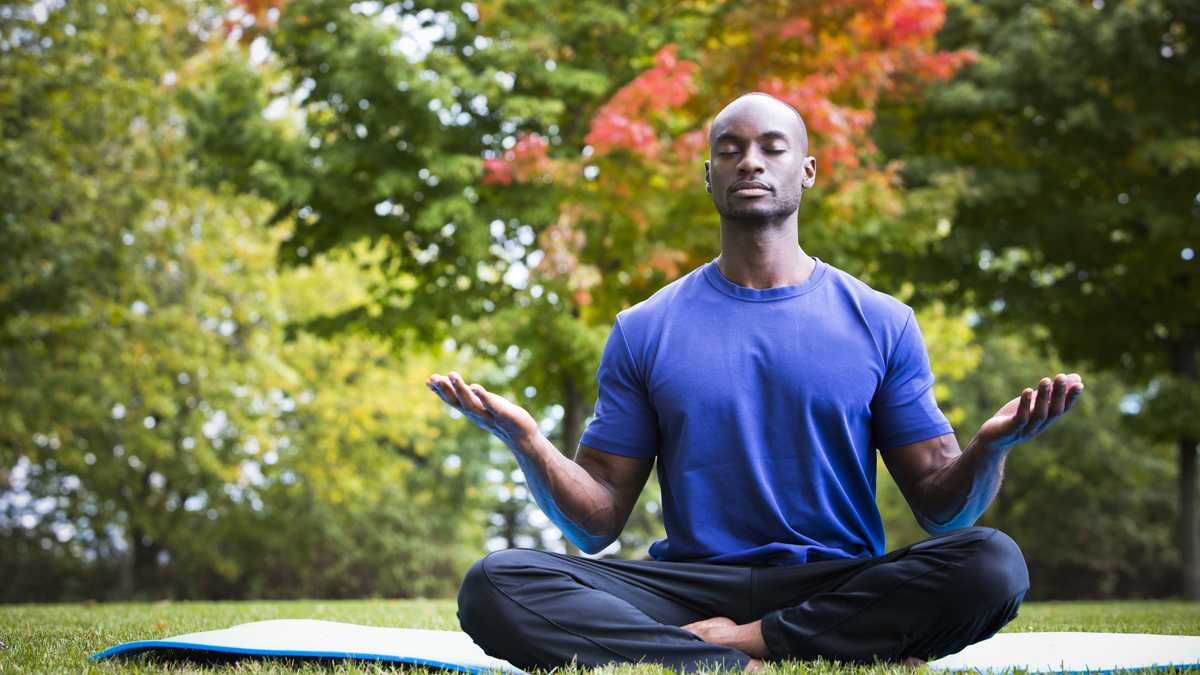Features
Exploring The Role Of Meditation And Mindfulness In Sports Performance

Sports performance is not just about physical strength and skills but also about mental agility and focus. Athletes often overlook the importance of mindfulness and meditation in their training routines. However, these practices can have a profound impact on improving their performance and overall well-being.
The Benefits of Meditation in Sports Performance
Meditation is the practice of training the mind to focus and redirect thoughts. It is a powerful tool that can enhance an athlete’s performance in several ways.
1. Enhances focus and concentration: One of the key benefits of meditation is its ability to improve concentration. By practicing mindfulness, athletes can learn to stay present and mentally focused, even in high-pressure situations. This increased focus helps them make better decisions and react quicker during gameplay.
2. Reduces stress and anxiety: Competitive sports can be extremely stressful, leading to performance anxiety. Meditation helps athletes calm their minds, reduce stress levels, and control their emotions. This allows them to perform at their best without being overwhelmed by pressure.
3. Improves self-awareness: Meditation cultivates self-awareness, allowing athletes to better understand their own thoughts, emotions, and bodily sensations. This awareness helps them recognize and address any negative or distracting thoughts that may hinder their performance.
4. Enhances resilience and mental toughness: Regular meditation practice strengthens the mind, making athletes more resilient and mentally tough. They develop the ability to bounce back from setbacks, stay focused, and perform consistently even under challenging circumstances.
Mindfulness in Sports Performance
Mindfulness is the practice of intentionally focusing on the present moment without judgment. Incorporating mindfulness into sports training can significantly boost an athlete’s performance and overall well-being.
1. Improved body awareness: Mindfulness helps athletes develop a strong mind-body connection. By being fully present in the moment, they can better understand their body’s sensations, movements, and limitations. This increased body awareness leads to better coordination and execution of skills.
2. Effective decision-making: When athletes are mindful, they can make decisions based on reality rather than on past experiences or future worries. They can assess the current situation accurately and make quick, effective decisions that can positively impact their performance.
3. Increased resilience to distractions: Mindfulness helps athletes become less reactive and easily distracted by external factors such as crowd noise, opponents’ behavior, or other unexpected events. They are better equipped to stay focused on the task at hand, irrespective of external influences.
4. Better stress management: Mindfulness practice teaches athletes to observe and accept their thoughts and emotions without judgment. This non-reactive stance enables them to manage stress more effectively, leading to improved performance and a greater sense of well-being.
Incorporating Meditation and Mindfulness into Sports Training
Integrating meditation and mindfulness into sports training does not need to be complicated. Here are a few practical ways for athletes to get started:
1. Set aside dedicated time: Allocate specific time each day for meditation or mindfulness practice. Start with a few minutes and gradually increase the duration over time.
2. Focus on breath awareness: Start by simply observing the breath. Pay attention to the inhalation and exhalation, the sensation of the breath entering and leaving the body. This helps center the mind and cultivate present-moment awareness.
3. Use guided meditations or mindfulness apps: For beginners, guided meditations or mindfulness apps can be helpful. These resources offer structured practices and instructions, making it easier for athletes to incorporate meditation into their routine.
4. Practice mindfulness during training: Encourage athletes to focus fully on their training sessions, paying attention to every movement, sensation, and thought that arises during practice. This helps develop awareness and enhances the mind-body connection.
As athletes incorporate meditation and mindfulness into their training routines, they will likely experience positive changes in their sports performance, mental well-being, and overall life satisfaction. It is essential to recognize that these practices require patience, consistency, and a commitment to self-improvement. By embracing these practices, athletes can unlock their true potential and excel in their chosen sport.










